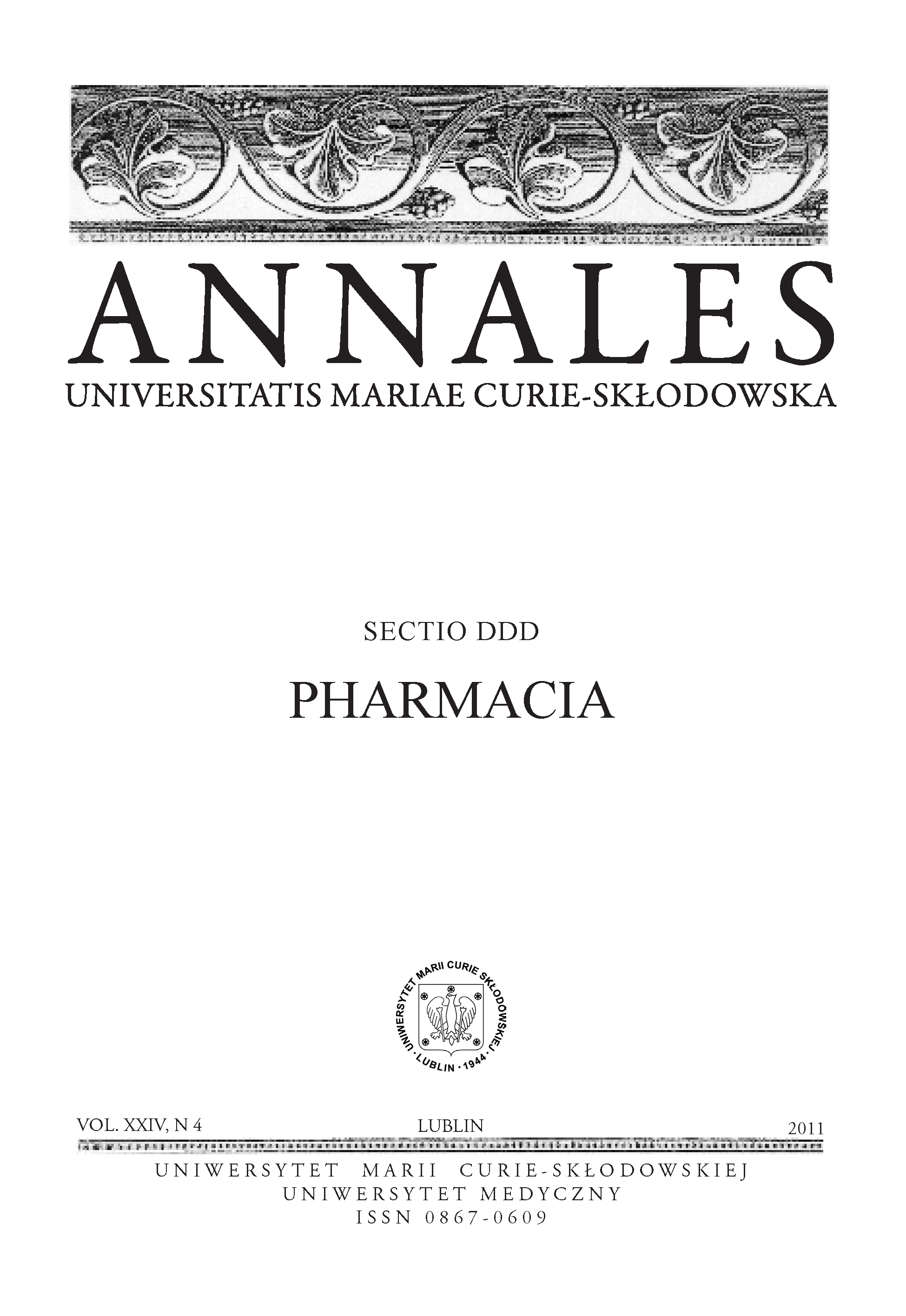Analiza profilu ekspresji genów kodujących białka receptorowe w komórkach raka endometrium
DOI:
https://doi.org/10.12923/Słowa kluczowe:
Rak endometrium, technika makromacierzy, profilowanie ekspresji genówAbstrakt
Rak endometrium jest jednym z najczęstszych nowotworów narządu rodnego. Mechanizmy molekularne leżące u jego podłoża są jednak wciąż bardzo mało poznane. Ponad 90% raków endometrium pozbawionych jest podłoża rodzinnego i zaliczanych jest do jednej z dwóch grup. Grupę I stanowią nowotwory estogenozależne diagnozowane u kobiet przed lub po menopauzie, powstajace na podłożu zmian hyperplastycznych endometrium. Cechują się one zaburzeniem funkcji genów systemu naprawy DNA, KRAS, PTEN oraz beta-kateniny. Grupa druga obejmuje nowotwory estrogenowo niezależne, diagnozowane w wieku pomenopauzalnym i cechujące się zaburzeniem funkcji p53 oraz HER2/neu.
Celem niniejszej pracy było opisanie, przy użyciu techniki makromacierzy, profilu ekspresji genów kodujących białka spełniające funkcje receptorowe w komórce reprezentatywnego dla stopnia zróżnicowania histopatologicznego lub zaawansowania klinicznego nowotworu. Zastosowanie testu Kruskala-Wilisa pozwoliło na wyodrębnienie 9 genów wykazujących istotne statystycznie zwiększenie lub obniżenie ekspresji w zależności od stopnia złośliwości histologicznej nowotworu. Analiza statystyczna zależności ekspresji genów oraz klinicznego stopnia zaawansowania pozwoliła na wyodrębnienie 15 genów wykazujących istotne zmiany ekspresji. Dla pełnego poznania czynników prognostycznych oraz opracowania terapii celowanych w raku endometrium konieczne jest jednak poznanie mechanizmów leżących u podłoża opisywanych zmian.
Bibliografia
1. Beviglia L. et al: Expression of the c-Met/HGF receptor in human breast carcinoma: correlation with tumor progression. Int J Cancer 74, 301, 1997.
2. Halperin R. et al: Comparative immunohistochemical study of endometrioid and serous papillary carcinoma of endometrium. Eur J Gynaecol Oncol. 22, 122, 2001.
3. Hecht J.L., Mutter G.L.: Molecular and pathologic aspects of endometrial carcinogenesis. JCO 24, 4783, 2006.
4. MacDonald N.D. et al: Frequency and prognostic impact of microsatelite instability in a large population-based study of endometrial carcinomas. Cancer Res 60, 1750, 2000.
5. Matias-Guiu X. et al: Molecular pathology of endometrial hyperplasia and carcinoma. Hum Pathol. 32, 569, 2001.
6. Mutter GL. et al: Altered PTEN expression as a diagnostic marker for the earliest endometrial precancers. J Natl Cancer Inst. 92, 924, 2000.
7. Natali P.G. et al: Overexpression of the met/ HGF receptor in renal cell carcinomas. Int J Cancer 69, 212, 1996.
8. Otte J.M. et al.: Functional expression of HGF and its receptor in human colorectal cancer. Digestion 61, 237, 2000.
9. Park Y.H. et al: Effects of hepatocyte growth factor on the expression of matrix metalloproteinases and their tissue inhibitors during the endometrial cancer invasion in a three-dimensional coculture. Int J Gynecol Cancer 13, 53, 2003.
10. Rolitsky C.D. et al: HER2/neu amplification and overexpression in endometrial carcinoma. Int J Gynecol Pathol. 18, 138, 1999.
11. Ryan A.J. et al: Endometrial cancer. Cell Tissue Res. 322, 53, 2005.
12. Seagusa M. et al: Beta-catenin mutations and aberrant nuclear expression during endometrial tumorigenesis. Br J Cancer, 84, 209, 2001.
13. Tanaka T. et al: Suppressed apoptotic susceptibility in human endometrial epithelial cells pretreated with hepatocyte growth factor. Clin Exp Obstet Gynecol 25, 125, 1998.
14. Tashiro H. et al: p53 gene mutations are common in uterine serous carcinoma and occur early in their pathogenesis. Am J Pathol. 150, 177, 1997.
15. Toyoki H. et al: Clinical implication of expression of cyclooxygenase-2 related to angiogenesis in uterine endometrial cancers. Ann Oncol. 16, 51, 2005.
16. Wagatsuma S. et al: Tumor angiogenesis, hepatocyte growth factor, and c-Met expression in endometrial carcinoma. Cancer 82, 520, 1998.
Pobrania
Opublikowane
Numer
Dział
Licencja
Prawa autorskie (c) 2011 Autorzy

Praca jest udostępniana na licencji Creative Commons Attribution-NonCommercial-NoDerivatives 3.0 Unported License.


